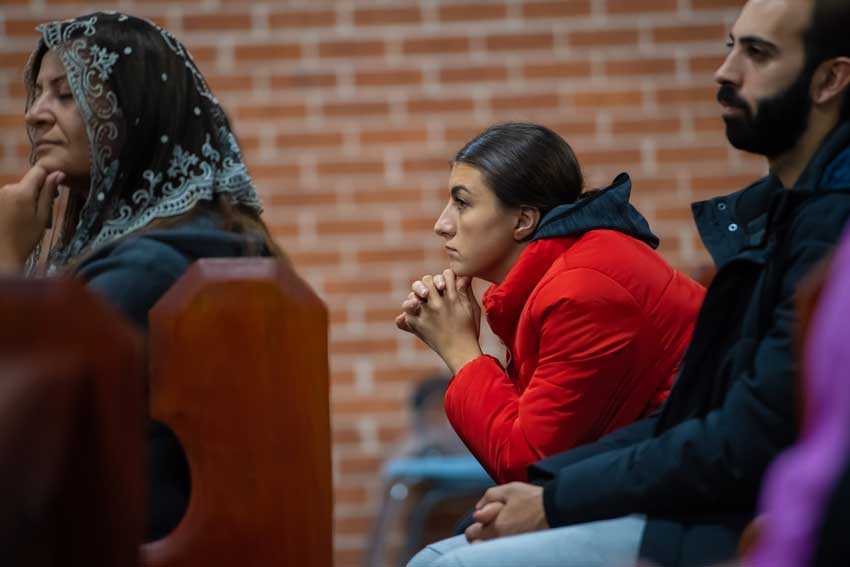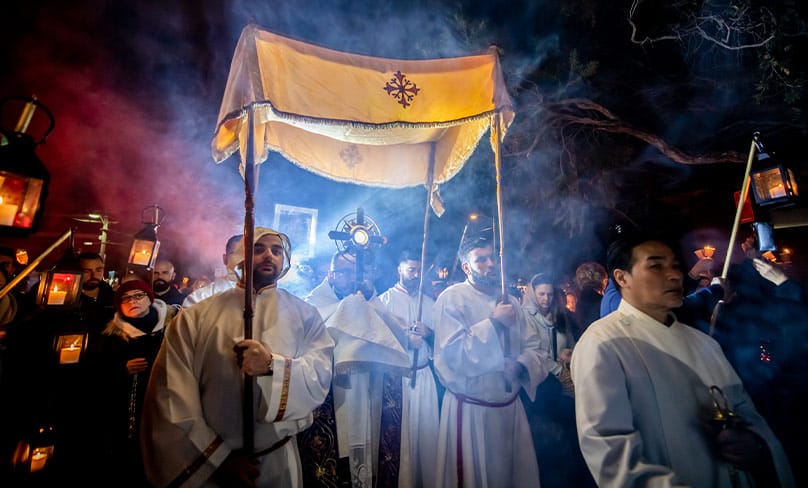
By Sr Margaret Ghosn mshf
We live in a polarising society. Extremism plays out before our eyes. We witness to fundamentalist (conservative) and liberalist approaches to religion. So, what are these extreme views, and where is the middle ground? As Maronites, we are often labelled as conservatives and reproached for our stance. However, that description may not be apt as many Maronites do seek a middle ground in faith, in an ever-changing society.
During periods of crisis and suffering, shift in National values, cultural transformations, and new social realities, it is no surprise people cling to traditional ways. A conservatism is embraced as it continues to value a sense of the sacred, the holy, the other world, it is accepting of self-sacrifice, it realises we do need some restrictions, and it respects the past.
“For liberalists, God is meant to solve all their problems and the purpose of religion is to make one feel good about oneself and life.”
However, although there are positive and affirming aspects of conservatism, there are also flaws including a tendency to focus on authority and order at the expense of freedom, it can be too legalistic, often emerges out of fear, an over-emphasis on doctrine and authority, a narrowed view of reality, exclusive rather than being inclusive, encourages simple human piety instead of deep spirituality, and entrenches itself within the past in opposition to the complexity of life. Social control, public order and moralism, become the key focus.
Fundamentalists often read the Bible literally and promote ideological extremism. Jesus is promoted as a teacher of tradition rather than a radical teacher. Today’s questions are responded to with yesterday’s answers. Yet the past is meant to prepare us to face the future.
On the other hand, we have liberals who want to reject a God of suffering and seek a God who fits inside their logic. For liberalists, God is meant to solve all their problems and the purpose of religion is to make one feel good about oneself and life. Jesus is understood as a personal saviour who is solely focused on one’s individual well-being.

Liberalism does have its positives including the fact that it read the world’s life-pulse, it values freedom, equality, individual rights, social justice and tolerance, and most importantly it offers necessary critical thinking.
However, liberalists also have areas of weakness including a lack of earnestness about private morality, too individualistic at the expense of real community, have moved focus from justice for the poor to advocacy of lifestyle, and have lost the sense of duty and self-sacrifice. Perhaps the greatest weakness of liberal churches is lack of real accountability as much of it is subject to individual egos and temperament, and current political correctness.
Fundamentalists and liberalists tend to have a reductionist understanding of reality. There is little soul searching and depth. Spirituality must be the foundation for any religious viewpoint, otherwise we become a group who base their views on fear, suspicion, and ego-inflation.
“We are called to transformation in faith so we can live in the present as disciples.”
Religion requires fundamentalism to maintain the essentials of authority and continuity in a culture, but also liberalism to ensure truth and reform in a culture. The past and the future are important but in the here and now we are called to depth, as it provides us with profound theological and spiritual renewal. We cannot remain in the shallows of right or left extremism. We must dive into our depths for Christian faith is not an espousal of opinions but is participation in the life of Christ.
Openness to the grace of the Holy Spirit will move us out of our limited perspectives to make way for new manifestations of God’s presence. We are called to transformation in faith so we can live in the present as disciples. It takes vision, courage and heart, to see God everywhere and in everyone, and to become committed to truth and justice.
Sr Margaret Ghosn mshf is a Maronite Sister of the Holy Family. She is currently Principal at Maronite College of the Holy Family in Harris Park, Sydney.
